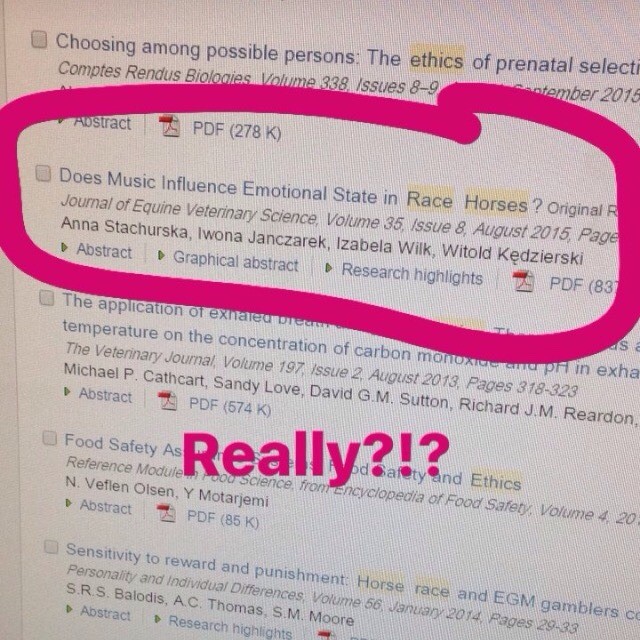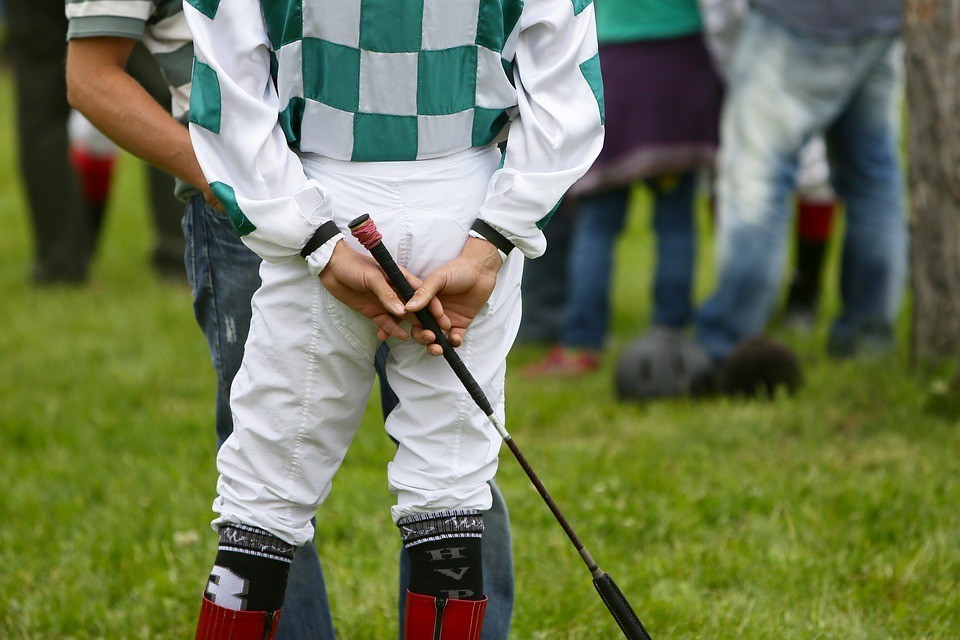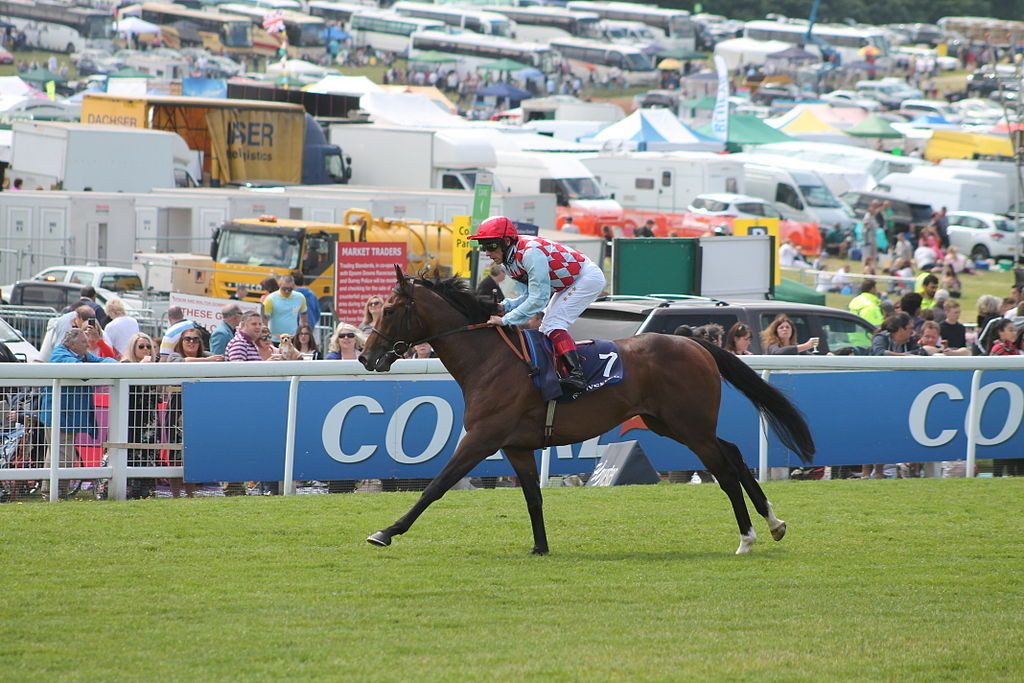So do I play Enya or Firestart by Prodigy to get horse in a winning mindset!?
When you consider how many races take place all over the country each year, it’s surprising how little actually goes wrong. The mechanics of racing are in fact what the tango tanned US president might call a ‘well oiled machine’, but much in the same way that such proclamations can immediately be followed by disaster (via tempting fate), in racing things don’t always go entirely to plan.
‘Bring a Horse’
When many of us head to a party we tend to bring a bottle. One inebriated racing fan in Kentucky though, instead decided to bring a horse instead – or at least steal a ride on one. Filled with dutch courage (and beer) a tipsy 24 year old Michael Wells-Rody, decided to get in on the action at the exciting, big money, Breeder’s cup event at Chuchill Downs. He grabbed a horse and made it all the way through restricted areas and to the track entrance. He was arrested soon after. I tend to be happy with a welcome bonus – you can find the best horse racing offer on horseracingbetting.co.uk – when I’m having a dabble on a race, whereas this guy apparently wanted to personally ride the winner.
He was described by Kentucky police as “manifestly under the influence of alcoholic beverages”which makes it sound like they were busy leafing through their thesaurus while we was sleeping off his hangover in a cell.
‘The Wrong Horse’
While a drunken reveller deciding he’s a champion jockey and deciding to climb onboard a horse is unusual, finding out the horse itself is an imposter is a real headscratcher. In July of last year gleeful on course punters at Great Yarmouth were happily collecting their winnings when 50-1 shot Mandarin Princess breezed to victory in the 6 furlong novice auction stakes for juveniles (beating the 4-6 favourite, Fyre Cay, in the process). However, after the weigh in, it became clear that the two year old horse was in fact it’s three year old stablemate Millie’s Kiss, who was due to run later that day. Both of the horses are brown fillies, and Trainer Charlie McBridge, who had placed a ‘fun bet’ of £10 each way described the event as ‘a genuine mistake’. As it occured after the weigh in, the result on course couldn’t be ammended. McBride was fined £1500.
Bizarrely a similar incident happened in Southwell in January of this year, when the Ivan Furtado (no relation to Nelly) trained African Trader was discovered to be stablemate Scribner Creek. This wasn’t discovered until days later! Take your time.
‘Man vs Horse’
Hot off the press, and touched on recently (via the twitter video posted previously!), is the story of young jockey Evan Daley, who earlier this month decided to go for an on-course jog at the the Navan, Republic of Ireland racecourse to ‘loosen up’. He certainly almost got his wish, in that a veritable stampede of horses launched over a fench just centimeters away from him. He had overlooked the fact that a two mile novice hurdle race was currently underway, something that had escaped his notice as he was listenign to music on his earphones. Thankfully for him (and his last second swerve) he was entirely unscathed, but this was certainly a dangerous situation. A lesson learned perhaps?
The Gay Future affair, or coup, was a plan that was brilliant in its conception, but ultimately ruined by one minor, but critical, oversight on the part of the conspirators. Dubbed ‘Operation Crock of Gold’, the coup was the brainchild of Tony Murphy, a millionaire construction magnate from Co. Cork, and planned for Cartmel on Bank Holiday Monday, August 26, 1974. On that day, the Ulverston Novice Hurdle at the Cumbrian course was the intended target for Gay Future who, as far as anyone not involved was concerned, trained by unheralded permit holder Tony Collins in Troon, on the west coast of Ayrshire, Scotland. However, unbeknown to the racing public, a month or so earlier, an unnamed horse, trained by Edward O’Grady in Co. Tipperary, had been shipped across the Irish Sea to Collins’ yard, with identity documents fraudulently identifying it as Gay Future.
To avoid suspicion, Collins also declared two horses – both moderate, but neither an intended runner – at Southwell and Plumpton, respectively, on the same day. The plan was for Murphy and a diverse cast of characters, later dubbed the ‘Cork Mafia’, to place a series of doubles and trebles on the three Collins-trained horses, safe in the knowledge that when the other two were withdrawn they would revert to single bets on Gay Future, leaving bookmakers with large, unexpected liabilities on the horse. Furthermore, on the day of the race, conditional jockey Jimmy McNeill was replaced by Tim Jones, a leading Irish amateur rider and the regular partner of the horse masquerading as Gay Future.
The plan worked, too, at least insofar that Jones steered the ‘ringer’ to a comfortable, 15-length win at odds of 10/1. However, it appears that the importance of the non-runners seems not to have been adequately stressed to Collins, who made no secret of the fact that he had no intention of running his horses in Nottinghamshire, let alone East Sussex, and allowed them to remain, in plain view, in his yard all day.
All that was required was a telephone call from an inquisitive journalist from the ‘Sporting Life’, to whom an unsuspecting member of stable staff confirmed the whereabouts of the horses, and the scheme started to unravel. Some bookmakers, mainly those in Britain, refused to pay out and Tony Murphy was subsequently found guilty of defrauding bookmakers and ‘warned off’ for ten years by the Jockey Club. He died, at the age of 52, in 1982, before the end of the ten-year period.
Photo by romavor, Public Domain
Horse racing punters spend years trying to win big at the races, but it appears they are not alone when it comes to believing in anything that can offer good fortune on race day. Many of the world’s most successful horse racing jockeys are just as superstitious as bettors. Australian jockey Chris Symons once admitted to the press that there’s “a lot of luck in winning”, which is probably why some jockeys become superstitious about their pre-race rituals.
For decades, superstition has gone hand-in-hand with gaming and punting, so it’s no surprise that horse racing is one of those sports to have some of the greatest and weirdest superstitions. With that in mind, this article is designed to shine a spotlight on some of the most commonly-talked-about superstitions in the world of horse racing, some of which are sure to put a smile on your face.
The bigger the ears, the better a horse’s racing attitude
It has been argued before that horses with longer ears than others are said to be more intelligent and have a better temperament for racing. Meanwhile, others have claimed that horses with large, floppy ears have better acceleration than their contemporaries.
Eye wrinkles are a sign of horses that make good jumpers
Some horse owners believe that visible eye wrinkles on horses are an indication of mental or physical discomfort. Researchers haven’t managed to prove this theory, but no research has yet been conducted into the notion among trainers that a horse’s eye wrinkles denote that it would make a good fence jumper for National Hunt racing.
Some owners think it’s bad luck for jockeys to ride trackwork prior to a race
Australian racehorse owner Lloyd Williams has previously intimated that he thinks it is bad luck to allow his riders to undergo trackwork with his horses prior to a big race. He claims it’s the number-one reason why Kerrin McEvoy won the 2016 Melbourne Cup aboard Almandin, without ever having ridden him before.
Magpie salutes for British jockey Sam Twiston-Davies
National Hunt jockey Sam Twiston-Davies, formerly of the Paul Nicholls stable, has a superstition of saluting any magpie that he sees aboard his horse en route to the post. It’s hard to know whether those salutes have special meaning to him or not, but, regardless, it seems to bring him good fortune, having won the Scottish Grand National back in 2017.
White tape is the key to Frankie Dettori’s success
Photo by monkeywing, CC BY 2.0
After winning the Epsom Derby in 2007 and 2015, it was revealed that Frankie Dettori had applied white tape to his saddle before each victory. In 2007, it was a racing engineer that suggest he place some “lucky white tape” on his saddle aboard Authorized. Sound engineer Pete Binfield wrapped this tape around Dettori’s right stirrup, and 20 minutes later he was the eventual winner of the Epsom Derby. It was the same again on Derby day in 2015 when Dettori prevailed again with Golden Horn.
Red jerseys are very popular at Hong Kong racecourses
Given that red is deemed an incredibly lucky colour in Chinese culture, it’s little surprise that horse racing jockeys that ride on Hong Kong’s impressive racecourses clamour to wear as much red as possible. However, in the UK, a report from CNN suggests that 40% of winning riders in the Grand National have been wearing either blue or green.
All eyes are often on the parade ring
A superstition held by some horse racing punters is that the last horse to depart the parade ring for the racecourse will go on to win the race. We’re not quite sure why that may be the case—perhaps the horse is extremely relaxed and doesn’t need to go to the post early? We’re not quite sure that this theory would have worked for the madcap T-Rex racing at Emerald Downs, either! Either way, it’s certainly something that some bettors place huge importance on during a race meeting.


